Complete Solutions to ASSIGNMENT SECTION - C of chapter ELECTROSTATIC POTENTIAL AND CAPACITANCE of Class 12 book with complete answers and questions
| Class 12 | PHYSICS |
| Chapter | ELECTROSTATIC POTENTIAL AND CAPACITANCE |
| AAKASH INSTITUTE | ASSIGNMENT SECTION - C |
| Number Of Questions | 53 |
| Academic Year | 2023-24 |
A capacitor is charged by a battery. The battery is removed and another identical uncharged capacitor is connected in parallel. The total electrostatic energy of resulting system
View SolutionThe diagram below show regions of equipotential:
A positive charge is moved from `A` to `B` in each diagram.
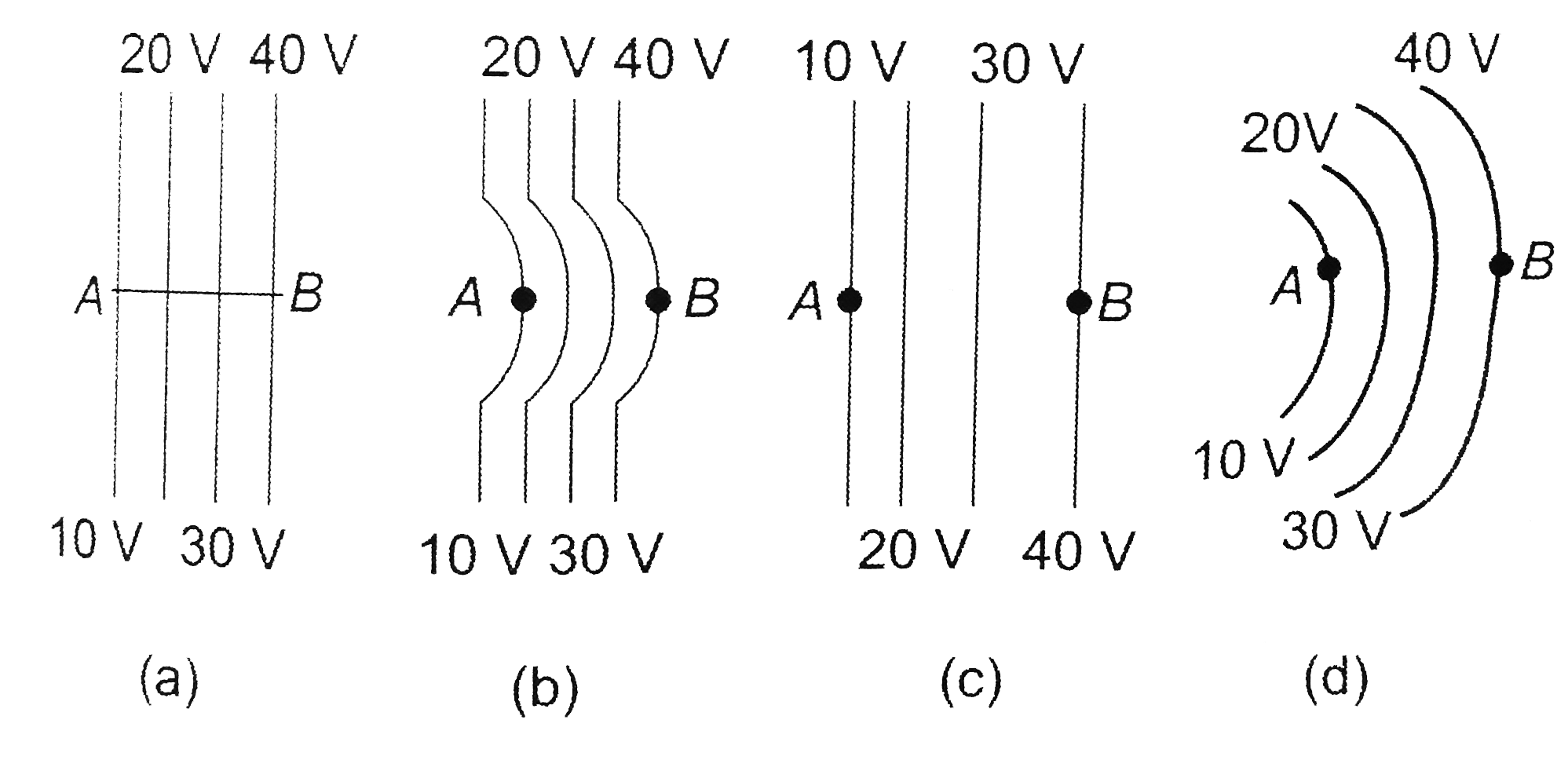
View SolutionA parallel plate capacitor of area A, plate separation d and capacitance C is filled with four dielectric materials hving dielectric constants `K_(1), K_(2), K_(3)` and `K_(4)` as shown in the figure below. If a single dielectric material is to be used to have the same capacitance c in this capacitor, then its dielectric constant K is given by

View Solution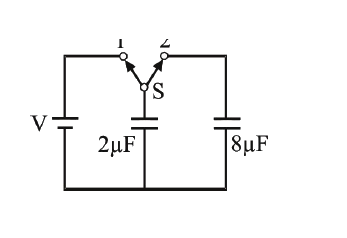
A capacitor of `2 mu F` is charged as shown in the diagram. When the switch S is turned to position 2, the percentage of its stored energy dissipated is:
View SolutionA parallel plate air capacitor has capacity C, distance of separation between plates is d and potential difference V is applied between the plates. Force of attraction between the plates of the parallel plate air capacitor is
View SolutionA conducing sphere of radius R is given a charge Q. The electric potential and the electric field at the centre of the sphere respectively are
View SolutionIn a region, the potential is represented by `V(x,y,z) = 6x - 8xy - 8y +6yz`, where V is in olts and x,y,z are in metres. The electric force experienced by a charge of 2 C situated at point (1,1,1) is
View SolutionTwo thin dielectric slabs of dielectric constants `K_(1)` and `K_(2) (K_(1) lt K_(2))` are inserted between the plates of a parallel plate capacitor, as shown in the figure alongside. The variation of electric field E between the plates with distance d as measured from plate P is correctly shown by

View SolutionA, B and C are three points in a uniform electric field. The electric potential is

View SolutionAn electric dipole of moment p is placed in an electric field of intensity E. The dipole acquires a position such that the axis of the dipole makes and angle `theta` with direction of the filed. Assuming that the potential energy of the dipole to be zero when `theta = 90^(@)` the torque and the potential energy of the dipole will respectively be
View SolutionFour point charges, Q - q,2q and 2Q are placed, one at each corner of the square. The relation between Q and q for which the potential at the centre of the square is zero, is
View SolutionA parallel plate capacitor has a uniform electric field E in the space between the the plates. If the distance between the plates is d and area of each plate is A, the energy stored in the capacitor is
View SolutionTwo metallic spheres of radii 1 cm and 3 cm are given charges of `–1 × 10^(–2) C` and `5 × 10^(–2) C`, respectively. If these are connected by a conducting wire, the final charge on the bigger sphere is -
View SolutionFour electric charges `+q,+q,-q and -q` are placed at the corners of a square of side `2L`. The electric potential at point A, midway between the two charges `+q and +q` is
View SolutionThree charges, each `+q` , are placed at the corners of an isosceles triangle ABC of side BC and AC, 2a. D and E are the mid-points of BC and CA. The work done in taking a charge Q from D to E is

View SolutionThe electri potential V at any point O (x, y, z all in metres) in space is given by `V = 4x^(2)V`. The electric field at the point `(1m,0,2m)` in volt `"metre"^(-1)` is
View SolutionA series combination of `n_(1)` capacitors, each of value `C_(1)`, is charged by a source of potential difference 4V. When another parallel combination of `n_(2)` capacitors, each of value `C_(2)`, is charged by a source of potential difference V,it has the same (total) energy stored in it, as the first combination has. The value of `C_(2)`, in terms of `C_(1)`, is then
View SolutionA condenser of capicity C is charged to a potential difference of `V_(1)`. The plates of the condenser are then connected to an ideal inductor of inductance L. The current through the inductor when the potential difference across the condenser reduces to `V_(2)` is -
View SolutionTwo parallel metal plates having charges +Q and –Q face each each other at a certain distance between them. If the plates are now dipped in kerosene oil tank, the electric field between the plates will -
View SolutionThree concentric spherical shells have radii `a, b` and `c(a lt b lt c)` and have surface charge densities `sigma, -sigam` and `sigma` respectively. If `V_(A), V_(B)` and `V_(C)` denote the potentials of the three shells, then for `c = a + b`, we have
View SolutionThree capacitors each of capacitance C and of breakdown voltage V are joined in series. The capacitance and breakdown voltage of the combination will be
View SolutionThe electric potential at a point (x,y,z) is given by `V =- x^(2) y - xz^(3) +4` The electric field E at that points is
View SolutionThe mean free path of electrons in a metal is `4 xx 10^(-8)` m. The electric field which can give on an average 2 eV energy to an electron in the metal will be in units of V/m :
View SolutionThe energy required to charge a parallel plate condenser of plate separation d and plate area of cross-section A such that the uniform electric field between the plates E, is
View SolutionThe electric potential at a point in free space due to a charge `Q` coulomb is `Q xx 10^(11)` volts. The electric field at the point is
View SolutionCharges +q and -q are placed at points A and B respectively which are a distance 2L aprt,C is the mid point between A and B. The work done in moving a charge + Q along the semicircle CRD is
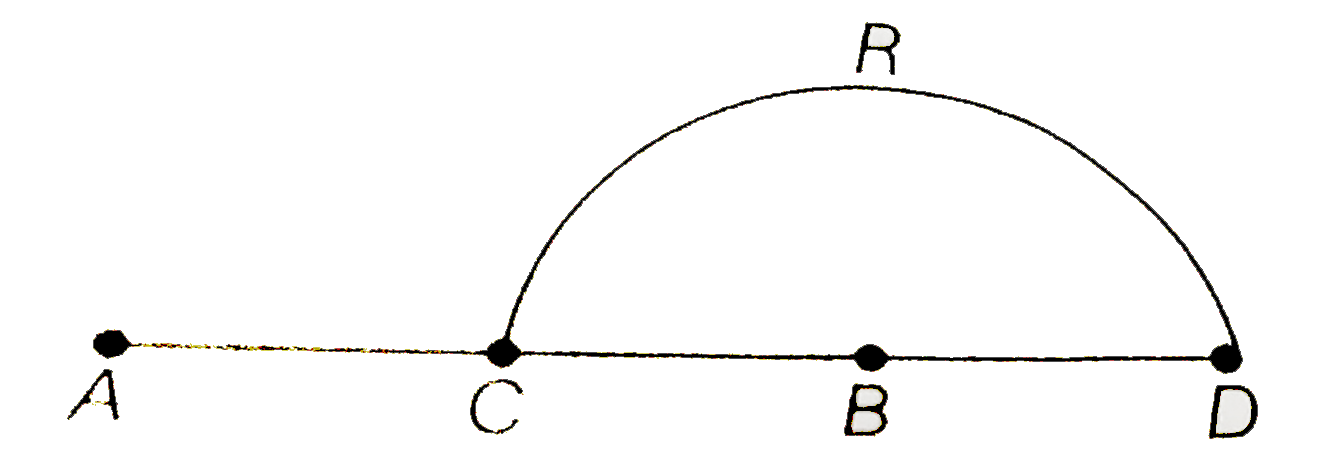
View SolutionTwo condenser one of capacity c and the other capacity `(C)/(2)`, are connected to a V volt battery as shown
The work done in charging fully both the condensers is

View SolutionA parallel plate air capacitor is charged to a potential difference of V volts. After disconnecting the charging battery the distance beetween the plates of the capacitor is increased using an insulating handle. As a result the potential difference between the plates
View SolutionA network of four capacitors of capacity equal to `C_(1) = C, C_(2) = 2C, C_(3) = 3C` and `C_(4) = 4C` are connected to a battery as charges on `C_(2)` and `C_(4)` is
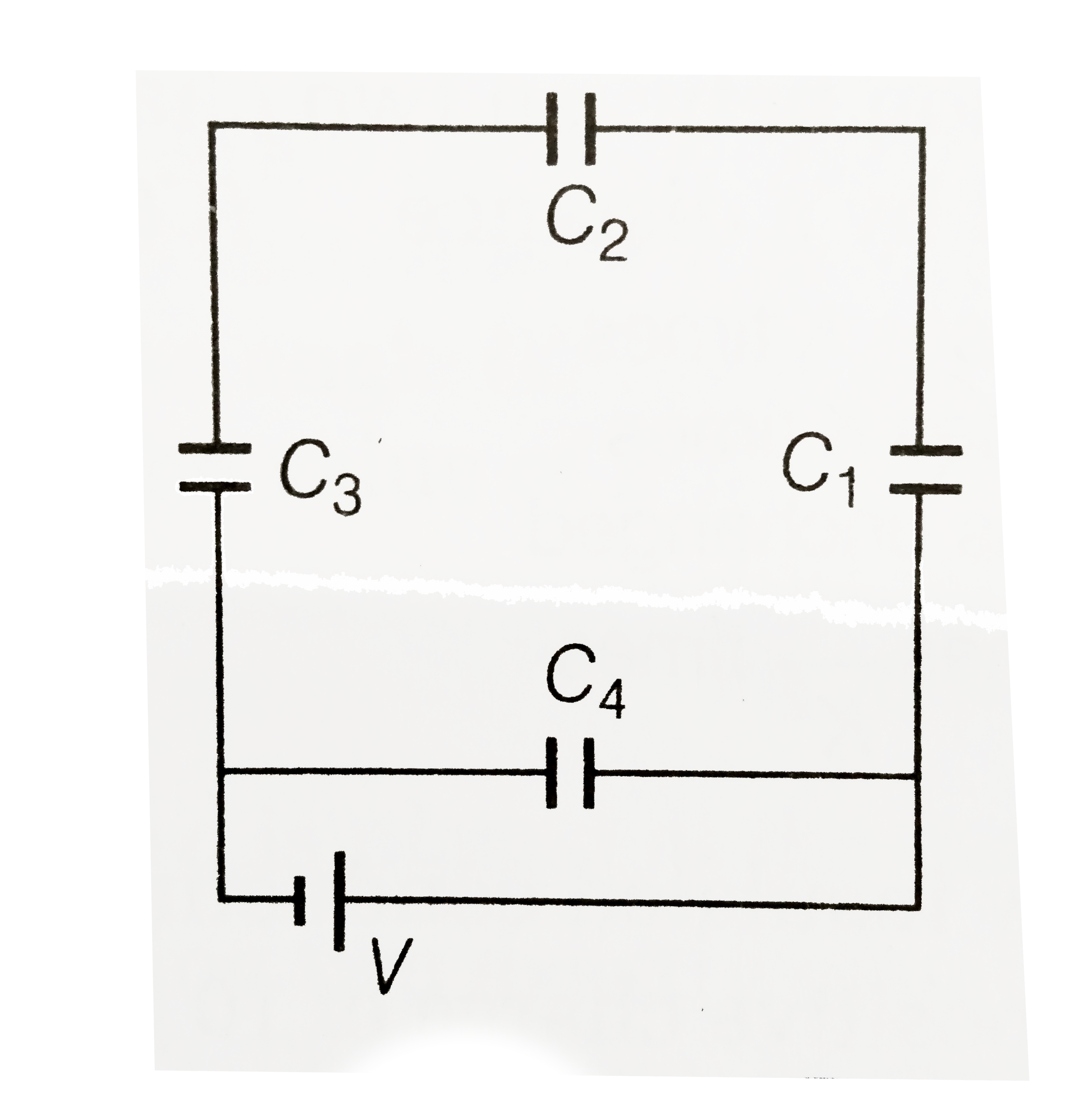
View SolutionA charge +q is placed at the origin O of x-y axes as shoen in the figure. The work done in taking a charge Q from A to B along the straight line AB is
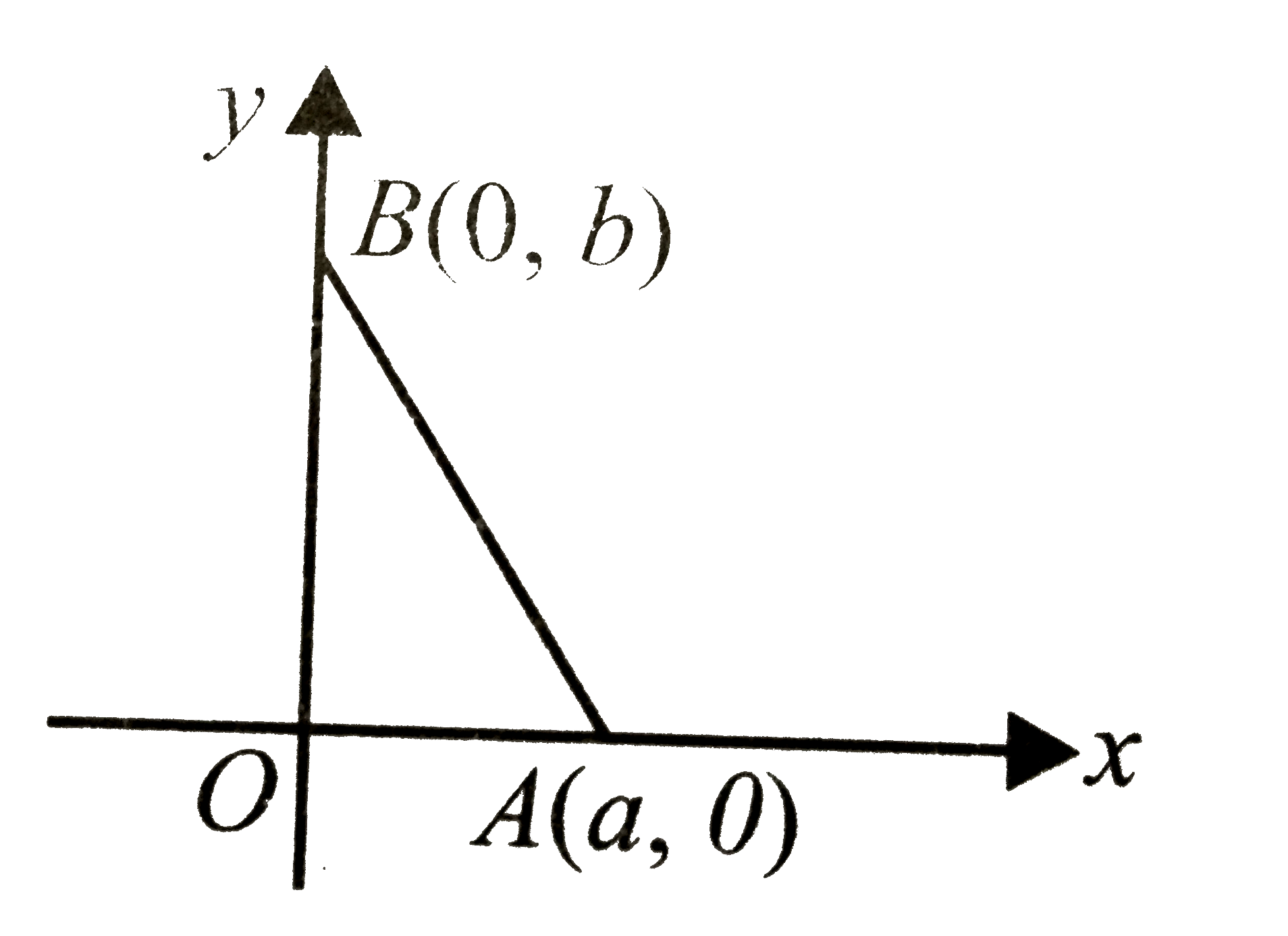
View SolutionTwo charges `q_(1) and q_(2)` are placed 30 cm apart as shown in the figure. A third charge `q_(3)` is moved along the arc of a circle of radius 40 cm from C to D. The change in the potential energy of the system is `(q_(3))/(4pi epsilon_(0))k`, where k is

View SolutionAn electric dipole of dipole moment p is placed in a uniform external electric field E. Then, the
View SolutionWhich of the following is not true ?
View SolutionHow many `1muF` capacitors must be connected in parallel to store a charge 1 C with a potential of 100 V across the capacitors ?
View SolutionA hollow metal sphere of radius 10cm is charged such that the potential on its surface is 80 V. The potential at the centre of the sphere is
View SolutionCharge `q_(2)` is at the centre of a circular path with radius r. work done in carrying charge `q_(1)` once around this equipotential path , would be
View SolutionAn electric dipole of moment `p` is palced in the positive of stable equilibrium in uniform electric field of intensity `E`. It is rotated through an angle `theta` from the initial position. The potential energy of electric dipole in the final position is
View SolutionThere is an electric field E in x-direction. If the work done on moving a charge of `0.2C` through a distance of 2m along a line making an angle `60^(@)` with x-axis is 4J, then what is the value of E ?
View SolutionTwo metallic spheres of radii 1 cm and 3 cm are given charges of `–1 × 10^(–2) C` and `5 × 10^(–2) C`, respectively. If these are connected by a conducting wire, the final charge on the bigger sphere is -
View SolutionThe energy stored in a capacitor of capacity C and potential V is given by
View SolutionAn electron of mass m and charge e is accelerated from rest through a potential different of V volt in vacuum. Its final speed will be
View SolutionWhen a proton is accelerated through `1 V`, then its kinetic energy will be
View SolutionA parallel plate condenser with oil (dielectric constant 2) between the plates has capacitance C. If oil is removed, the capacitance of capacitor becomes
View SolutionIn bringind an electron towards another electron, the electrostatic potential energy of the system
View SolutionWhat is the effective capacitance between points X and Y ?
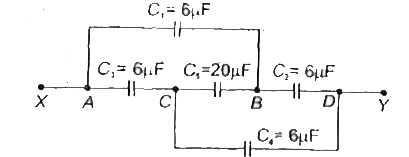
View SolutionA capacitor is charged with a battery and energy stored is U. After disconnecting battery another capacitor of same capacity is connected in parallel with it. Then energy stored in each capacitor is:
View SolutionEnergy per unit volume for a capacitor having area A and separation d kept at potential diffeence V is given by : -
View SolutionSome charge is being given to a conductor, then it potential is
View SolutionA capacitor of capacity `C_(1)`, is charged by connecting it across a battery of emf `V_(0)`. The battery is then removed and the capacitor is connected in parallel with an uncharged capacitor of capacity `C_(2)`. The potential difference across this combination is
View SolutionIf identical charges `(-q)` are placed at each corner of a cube of side `b`, then electric potential energy of charge `(+q)` which is placed at centre of the cube will be
View SolutionThe capacitors each of capacity `4 muF` are to be connected in such a way that the effective capacitance is `6 muF`. This can be done by
View SolutionAn electric dipole has the magnitude of its charge as q and its dipole moment is p. It is placed in a uniform electric field E. If its dipole moment is along the direction of the field, the force on it and its potential energy are respectively :-
View SolutionA bullet of mass 2 g is having a charge of 2 `mu`C. Through what potential difference must it be accelerated, starting from rest, to acquire a speed of 10 m/s ?
View Solution
ASSIGNMENT SECTION - C questions and complete solutions for chapter ELECTROSTATIC POTENTIAL AND CAPACITANCE of AAKASH INSTITUTE ENGLISH of Class 12
All Exercises from AAKASH INSTITUTE Class 12 PHYSICS ELECTROSTATIC POTENTIAL AND CAPACITANCE
- ASSIGNMENT (SECTION-A) Objective Type Questions (Only one answer)
- ASSIGNMENT SECTION - A
- ASSIGNMENT SECTION - B
- ASSIGNMENT SECTION - C
- ASSIGNMENT SECTION - D
- COMPREHENSION-II
- EXAMPLE
- EXERCISE
- SECTION-B (OBJECTIVE TYPE QUESTIONS (ONLY ONE ANSWER) )
- SECTION-B(OBJECTIVE TYPE QUESTIONS(ONLY ONE ANSWER) )
- SECTION-C (OBJECTIVE TYPE QUESTIONS (More than one answer))
- SECTION-D(COMPREHENSION-I)
- SECTION-E (Assertion-Reason Type Questios)
- SECTION-F(MATRIX-MATCH TYPE QUESTIONS)
- SECTION-G(INTEGER ANSWER TYPE QUESTIONS)
- SECTION-H Multiple True-False Type Questions
- SECTION-I Subjective Type Questions
- SECTION-J Aakash Challengers Questions
- TRY YOURSELF